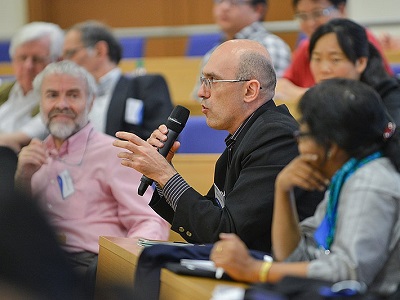The relevance of agriculture in formal employment dropped in many European, Central and East Asian countries over the previous decades. The mutually reinforcing and interdependent processes of development outside the agricultural sector, along with significant urbanization, have resulted in new dynamics and diversity in rural labour landscape. Remittances, as the link between urban and international migrants and their original households, have gained importance in sustaining rural livelihoods, especially in poorer countries and regions. Yet in a number of countries, agricultural activities still fulfil important safety net functions. However, a potential lack of qualified agricultural labour and increasing wages, as observed in some places, will constrain future prospects of the agricultural and non-agricultural sectors. These phenomena are not fully understood in terms of their functioning, relation to poverty and effect on sustainability outcomes. Noberto's speech will be entitled 'Stalled Structural Transformation and Missing Labor Markets in the Republic of Georgia'. After the collapse of the Soviet Union, the Georgian agricultural sector reverted from being capital-intensive and highly productive to a low-productivity and labor-intensive state. Two decades later, land ownership is still very fragmented and the labor market in rural areas of Georgia is still characterized by a large proportion of working individuals stuck in low productivity (subsistence) jobs and unable to access a wider market.
The most striking feature of the rural labor market in Georgia is the extremely large share of unpaid family workers, apparently unable (or unwilling) to find alternatives to their condition (which we could define in most cases as underemployment) even in the informal sector.
Additional information about the forum can be found here.











